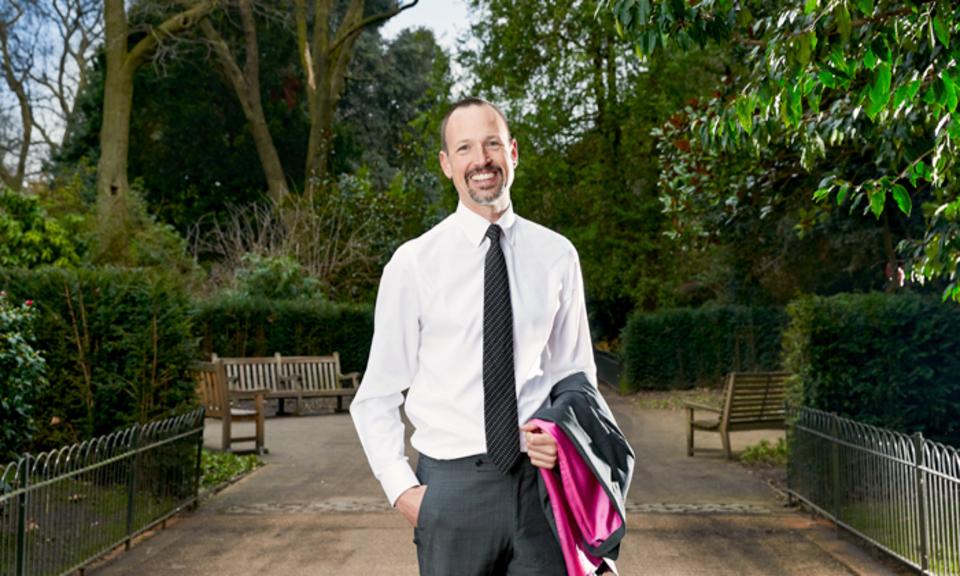
Dr Charles Donovan, Director of the Centre for Climate Finance and Investment at Imperial Business School, warns investors to prepare for the effects of climate change on global finance
As Bank of England Governor Mark Carney highlighted in 2015, the impact of human-induced climate change is a major risk with “potentially profound implications for financial stability and the economy”. That year also saw the Paris Agreement emerge from a UN summit, the G-20 appoint a working group to look at the effects of climate change on global finance, and major fund managers (such as Blackrock) issue carbon risk warnings to their clients.
Nonetheless, investors are still struggling to understand the financial issues surrounding climate change and time is fast running out to bring them up to speed.
Climate risk is a catch-all term that describes the potential impact on financial assets from both direct physical effects of climate change and the indirect consequences of transitional measures taken to reduce greenhouse gas emissions.
Increasing storm damage from more extreme weather patterns is an example of a direct effect. The insurer Lloyd’s estimates that the New York property damage from Hurricane Sandy was amplified 30% due to sea levels having risen 20cm – the equivalent of more than $5 billion in extra costs. Other direct effects are likely to include substantial changes in agricultural productivity, and supply chain disruptions associated with flooding and extreme heat events.
Yet for most businesses, the indirect effects of climate policy are potentially greater and more immediate. These include the impact of existing and future emissions reduction policies and ongoing technological disruptions spawned by past investments in low-carbon energy. Policy issues have huge implications on long-term infrastructure, and many investors are already testing their base case investment forecasts against future changes in subsidy and tax reform.
Investors must be on guard against the old, and increasingly inaccurate, narratives about climate risk. One example is the misnomer that clean energy is most highly exposed to changes in government subsidies. According to the International Monetary Fund, the direct subsidy to fossil fuels globally is nearly three times that to renewable energy. Recent analysis by the Stockholm Environment Institute indicates that in the United States – now the world’s largest oil and gas producer – state and federal subsidies comprise between 200 and 600 basis points of unlevered financial return. Strip these away and, at current oil prices, nearly half of new crude oil resources would become uneconomic.
Likewise, technology is driving major disruption in energy markets. In Germany, whose economy is quickly becoming the pre-eminent laboratory for observing the impacts of climate risk, the major electric utilities have been forced to undertake radical corporate restructuring to separate their carbon-heavy businesses from their more future-facing ones.
For the well-diversified institutional investor, these are crucial factors to consider. Even if a Trump presidency sees a withdrawal from United Nations Framework Convention on Climate Change, there is little that can stop the global race underway amongst other G-20 countries to position themselves for a carbon-constrained future.
Research by the Institute for Energy Economics and Financial Analysis revealed that China’s investments in green technology overseas amounted to more than $30 billion in 2016 alone. Chinese companies are snapping up everything from solar projects and wind farms to hydropower installations and lithium production companies.
Indeed, it’s easy to agree with President Trump; there has been a ‘Chinese hoax’ about climate change, although it has nothing to do with the science of global warming. The hoax is that by building so many coal-fired power stations at the beginning of this century, China managed to divert the world’s attention from the fact that it was simultaneously building the world’s first clean energy superpower.
Recent years have seen significant divestments by investors, such as the Norwegian sovereign wealth fund and Allianz, who have concluded that fossil fuels no longer have a place in their investment portfolios. At the end of last year, the divestment movement included institutions and individuals who collectively own $5 trillion in assets. Meanwhile, overwhelming evidence points towards an accelerating global shift towards renewable resources. This new reality is great news for forward-thinking investors, as properly-designed environmental policies spur innovation and benefit businesses by generating new sources of wealth.
There’s no doubt that climate risk is a complex issue, and more work needs to be done to fully equip investors with the tools they need to navigate a changing global climate. In the meantime, investors themselves can demand more and better disclosure, whilst making fuller use of existing information available to them.
At the Business School, we are addressing a number of issues of immediate concern:
- How should plausible carbon and climate outcomes be defined, thereby allowing scenario analysis across portfolios?;
- How can carbon measurement, performance benchmarking and risk-management options be improved?; and,
- How can the granularity of ‘green’ as an investment attribute be improved by measuring the past performance of green investment strategies.
A year after speaking at Lloyd’s, Mark Carney returned to the issue of climate finance, asserting that “with investment in long-term infrastructure assets needing to quadruple, green finance cannot conceivably remain a niche interest”.
We couldn’t put it better. With regulators debating new climate risk disclosure requirements, investors should be prepared to go on the offensive. The alternative is to risk having their fiduciary responsibilities undermined by structural changes in the global economy sparked by climate risk. The evidence indicates that these changes are already underway.


